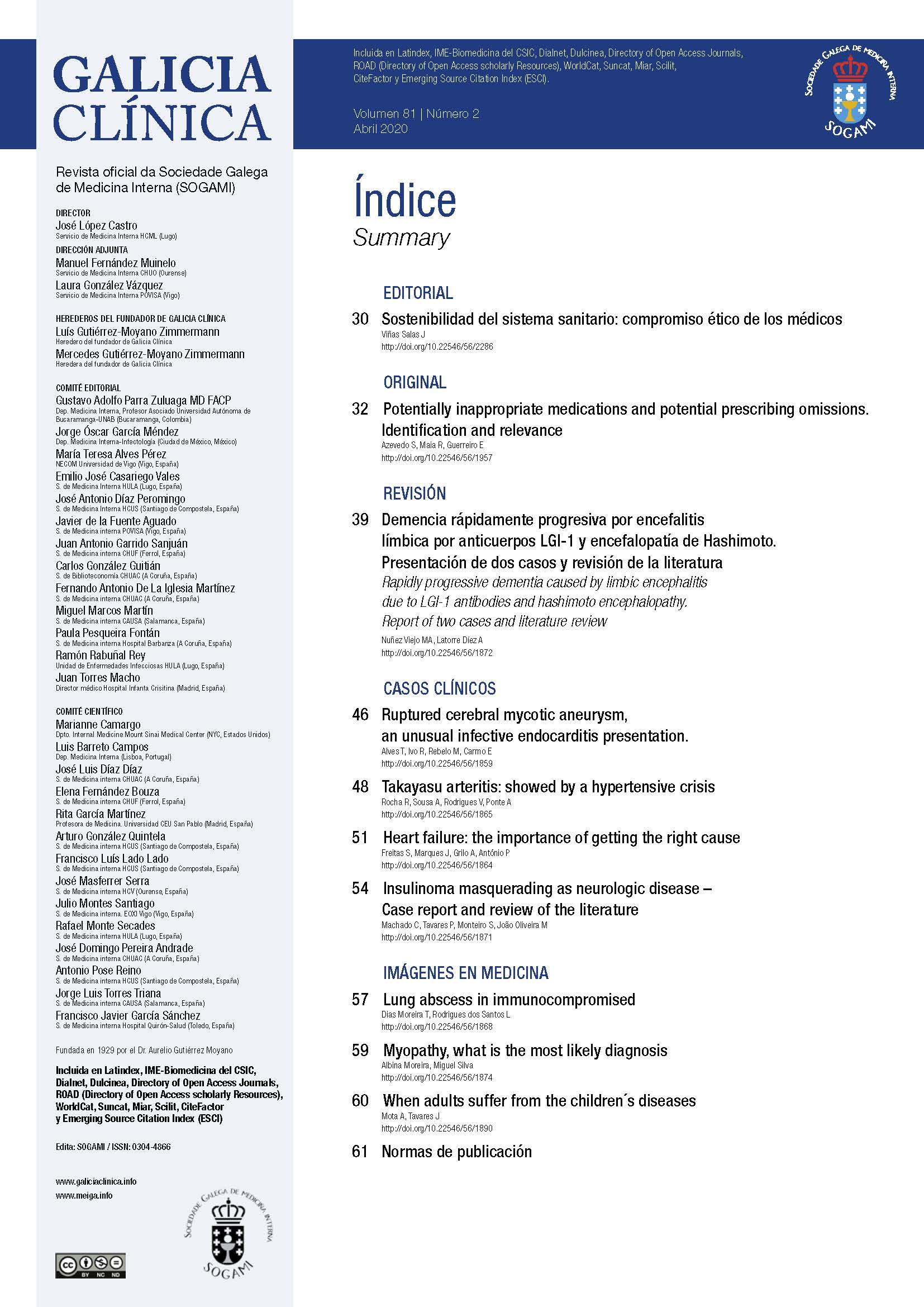Abstract
Amyloidosis is a systemic disease, with an incidence of 5-12 people per million per year and autopsy studies suggest the incidence might be higher1. This condition is characterized by deposition of amyloid fibrils, in the extracellular tissue of various organs and systems, and therefore with multiple possible presentations. The causative amyloid fibril deposits are of monoclonal light chain (AL) or transthyretin (TTR) in the vast majority of cases. TTR amyloidosis may be acquired, associated with wild type TTR or hereditary (associated with variants in TTR gene2 (table 1).
The AL amyloidosis condition can occur alone or associated with multiple myeloma or other B-cell dyscrasias3. The main affected organs in AL amyloidosis are the heart, kidney, liver, gastrointestinal tract and the peripheral and autonomic nervous systems. Patients often present with non-specific symptoms, such as asthenia, weight loss, palpitations and syncopal attacks4. Thus, diagnosis is usually delayed, and renal and cardiac failure can be forms of presentation.
We report a case of a 68-year-old woman, who presented with new onset heart failure as the main presentation form of multiple myeloma with associated cardiac amyloidosis. This case highlights the need of a high level of suspicion in order establish an early diagnosis and initiate specific therapy, and therefore delay the development of this condition.
© 2020 Galicia Clínica.
Complete article | Pdf article


